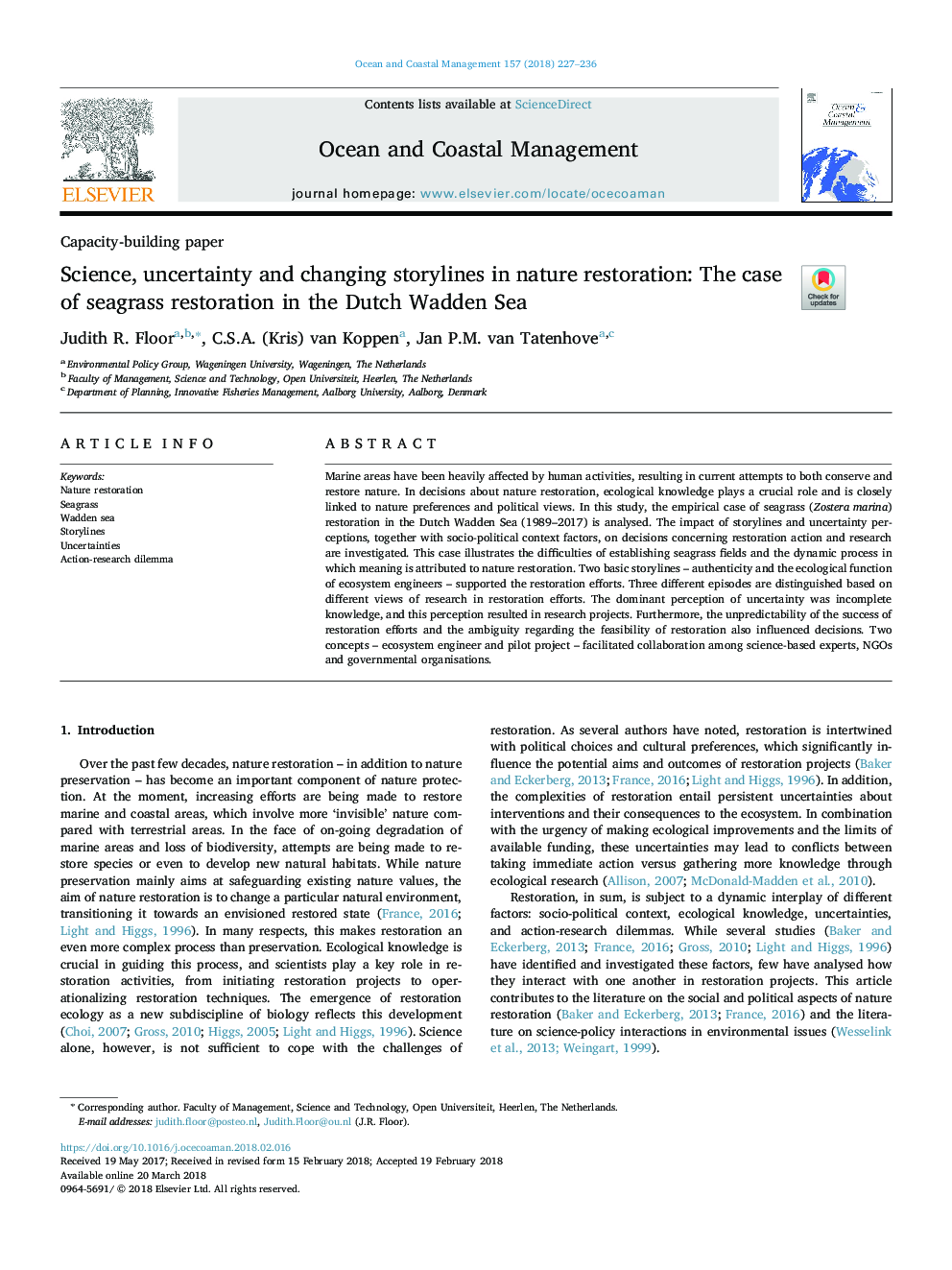| Article ID | Journal | Published Year | Pages | File Type |
|---|---|---|---|---|
| 8060730 | Ocean & Coastal Management | 2018 | 10 Pages |
Abstract
Marine areas have been heavily affected by human activities, resulting in current attempts to both conserve and restore nature. In decisions about nature restoration, ecological knowledge plays a crucial role and is closely linked to nature preferences and political views. In this study, the empirical case of seagrass (Zostera marina) restoration in the Dutch Wadden Sea (1989-2017) is analysed. The impact of storylines and uncertainty perceptions, together with socio-political context factors, on decisions concerning restoration action and research are investigated. This case illustrates the difficulties of establishing seagrass fields and the dynamic process in which meaning is attributed to nature restoration. Two basic storylines - authenticity and the ecological function of ecosystem engineers - supported the restoration efforts. Three different episodes are distinguished based on different views of research in restoration efforts. The dominant perception of uncertainty was incomplete knowledge, and this perception resulted in research projects. Furthermore, the unpredictability of the success of restoration efforts and the ambiguity regarding the feasibility of restoration also influenced decisions. Two concepts - ecosystem engineer and pilot project - facilitated collaboration among science-based experts, NGOs and governmental organisations.
Related Topics
Physical Sciences and Engineering
Earth and Planetary Sciences
Oceanography
Authors
Judith R. Floor, C.S.A. (Kris) van Koppen, Jan P.M. van Tatenhove,
